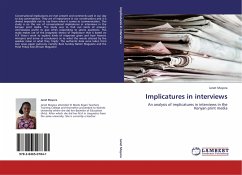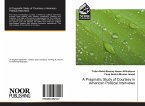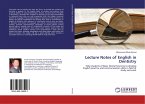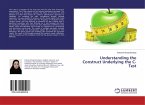Conversational implicatures are ever present and commonly used in our day to day conversations. They are of importance in our conversations and it is almost impossible not to use them when it comes to communication. This study is on the use of conversational implicatures in interviews in the Kenyan print media. The study was to find out kinds of answers interviewees prefer to give when responding to yes/no questions. This study makes use of the pragmatic theory of implicature that is based on H.P. Grice s work to explore kinds of responses given and how hearers interpret and arrive at conclusions as to what the words uttered by the speaker mean or what they imply . The authentic data were taken from two news paper pull-outs, namely: Buzz Sunday Nation Magazine and the Pulse Friday East African Magazine.
Bitte wählen Sie Ihr Anliegen aus.
Rechnungen
Retourenschein anfordern
Bestellstatus
Storno








